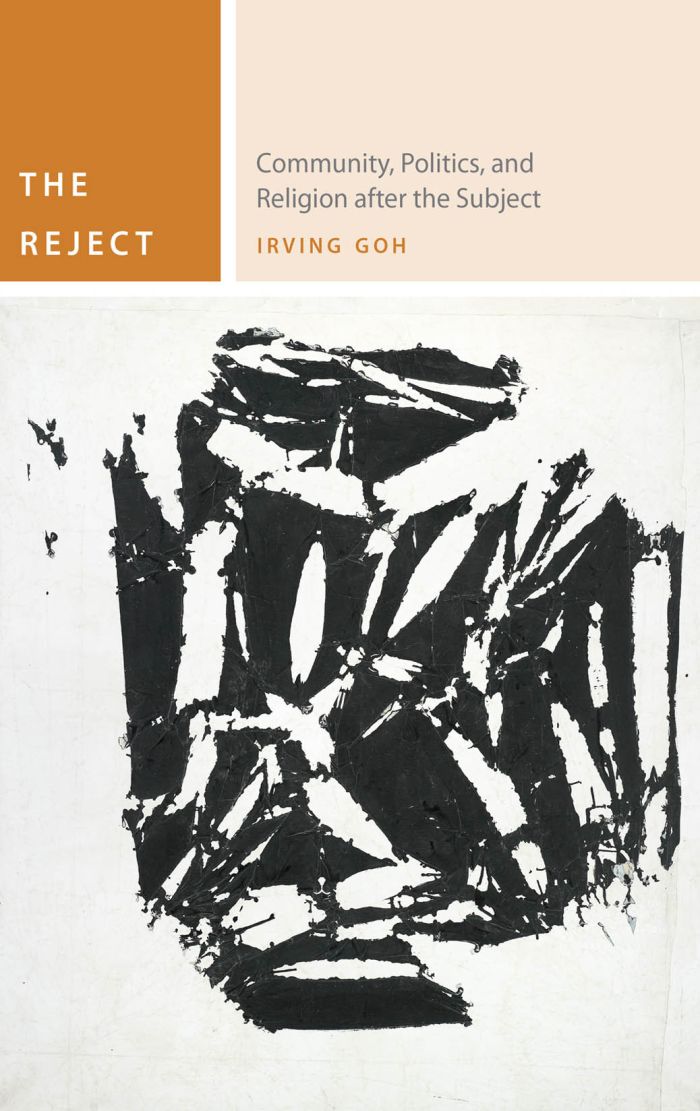The Reject
Community, Politics, and Religion after the Subject

This book can be opened with

This book proposes a theory of the reject, a more adequate figure than the subject for thinking friendship, love, community, democracy, the postsecular, and the posthuman.
Through close readings of Nancy, Deleuze, Derrida, Cixous, Clement, Bataille, Balibar, Ranciere, and Badiou, Goh shows how the reject has always been nascent in contemporary French thought. The recent turn to animals and bare life, as well as the rise of the Occupy movement, he argues, presents a special urgency to think the reject today.
Thinking the reject most importantly helps to advance our commitment to affirm others without acculturating their differences. But the reject also offers, Goh proposes, a response finally commensurate with the radical horizon of Nancy’s question of who comes after the subject.
“Subject, Eject, Reject, Project: ‘ject’ is the theme, the tone, the issue. Irving Goh understands perfectly the jection without any kind of junction, recognizing that what remains to be thought is just some ject-society or community. In reading The Reject, one begins to join the unjoinable."
In this ambitious and spirited book Irving Goh traverses a great swath of recent French thought.——Critical Inquiry
In The Reject, Irving Goh not only traces the persistent presence of the subject in the work of Badiou (“the faithful subject of the event”), Rancière (“the uncounted subject”), Balibar (“the citizen-subject”), Rosi Braidotti (“the critical post-human subject”), and Katherine Hayles (“the flickering post-human subject”), he also provides clear and reasonable arguments as to why this presence poses serious problems for their respective attempts to think community, democracy, religion, love, friendship, the post-secular, and the post-human in wholly new ways....Goh offers one of the most rigorous and carefully articulated responses to the question 'who comes after the subject'
This book is a rigorous examination of the problems surrounding the returns to/of the subject that have occurred under the motley banner of "French Theory." Closely tracking the discourses of Deleuze, Derrida, and Nancy, the author convincingly argues that what we need today is a better strategy of re-jection. I couldn't agree more!
“A highly ambitious, theoretically engaged, and timely response to several strands in recent French philosophical and intellectual thought.”

